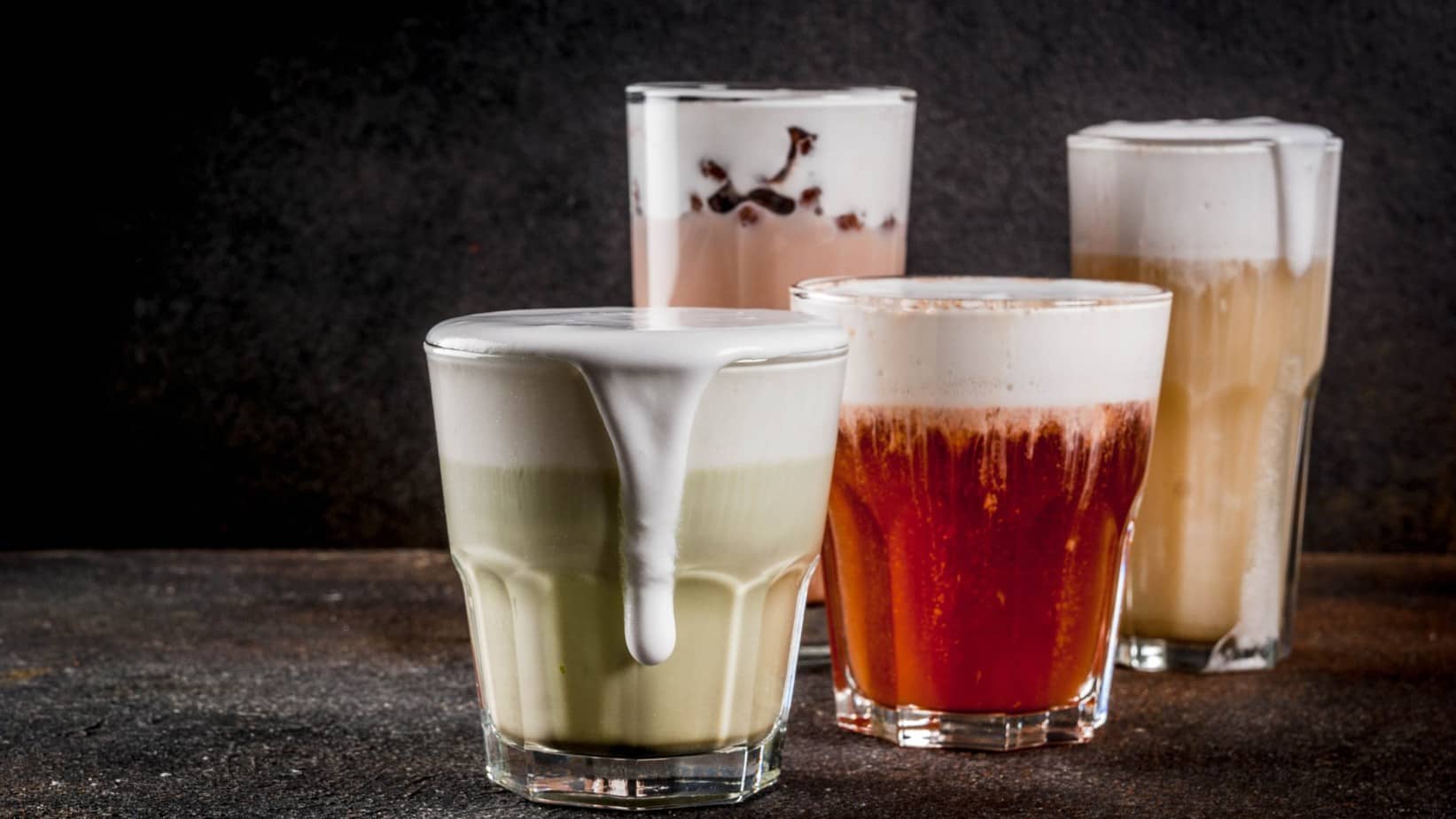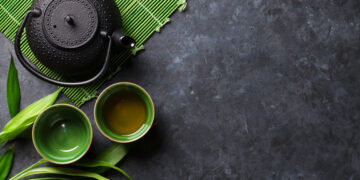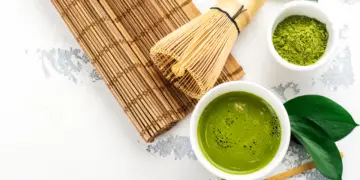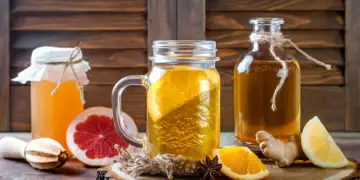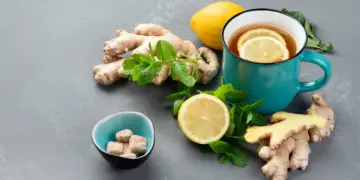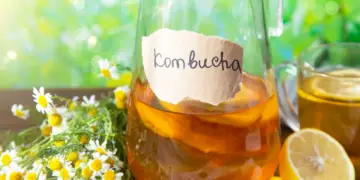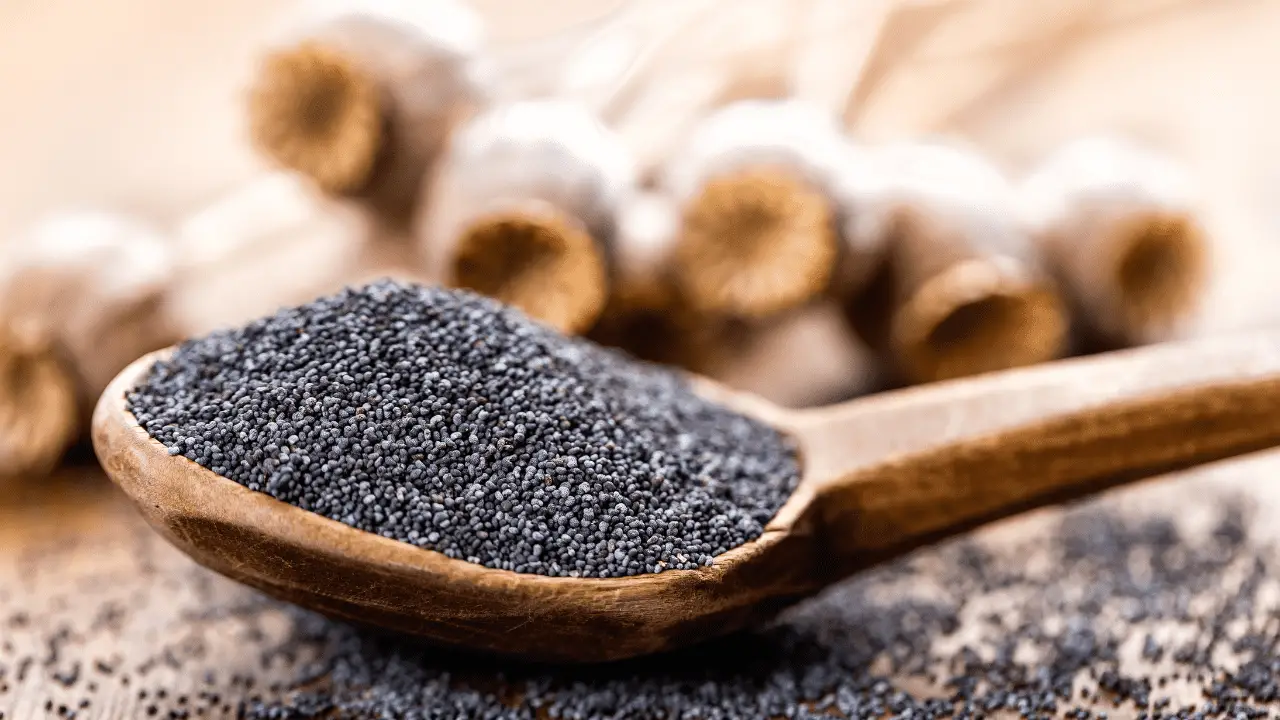Drinking tea has always been thought of as a healthy, smart thing to do. Tea can hydrate your body while giving you a boost of antioxidants to further strengthen and improve your health. You may have heard of some of the stranger types of tea that are out there – teas made from flowers, vegetables, herbs, and berries. But did you know that cheese tea is quickly becoming a popular variation?
We know what you’re thinking – cheese tea does NOT sound appetizing! Nevertheless, this strange-sounding beverage is well and truly becoming one of the most popular teas you can buy. Before you navigate away from this article, let’s find out a little bit more about what the term “cheese tea” really means.
In this article, we’ll be exploring all the weird facts about this new tea fad. Is cheese tea REALLY a thing? Is it good for you? And where is it sold? Keep reading to discover everything you could want to know about this bizarre new tea trend.
What is Cheese Foam Tea?
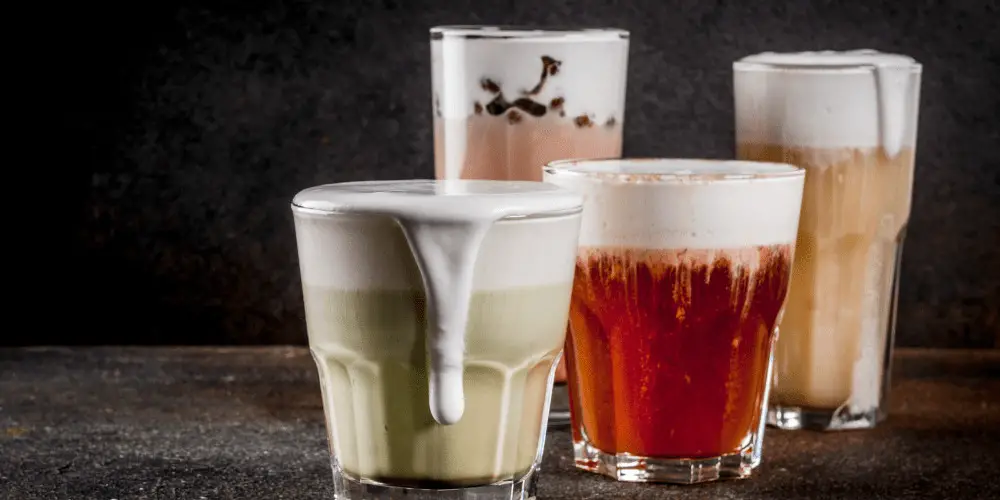
So, what exactly is cheese tea? Most people assume it must be cheese-infused hot water, like other teas, or even the leftover liquid from making cheese (whey). However, it’s quite a bit different than what most people initially imagine
Cheese tea originally took off in Taiwan before sweeping across Asia as a popular beverage. This tea began fairly simply – as tea topped with cheese powder, but has since evolved to be known as cheese foam tea which is black or green herbal tea topped with a thick layer of creamy foam.
You may think this sounds strange but bear with us. Lots of people seem to love it, so there must be something to it!
The foam is actually made from a mixture of cream cheese, whipped cream, and milk. The taste of this foam is similar to a foamy cheesecake or a milkshake. That sounds a lot better than a creamy, rich cheese!
Not only does this foam taste pretty delicious, but it’s also pretty attractive-looking, too. In fact, thousands of people have taken to Instagram to post pretty pictures of their foamy cheese teas. Essentially, the drink has started to develop its own cult following of millennial devotees. In fact, there are reports of people hiring others to stand in line for up to three hours just so that they could get their hands on this strange, trendy new tea. Now, it’s begun to make the rounds in the US, and it’s quickly gaining popularity.
Are There Different Variations Of Cheese Tea?
Cheese tea is a fairly new concoction that is made differently by every shop at which it is available. While some opt for more cheesy foam mixes, one cafe in San Francisco actually skips the cheese altogether, and instead uses a Sea Salt Mousse. Other cafes, however, use a more “traditional” cheese tea recipe.
The common ingredient theme in all is cream cheese, whipped cream, sweetened condensed milk, topped with a sprinkle of salt. This mixture is whipped up into a light, frothy foam, which is delicately placed on top of a base of sweetened black or green tea. The tea can be served either hot or cold.
Is Cheese Tea Good For You?
The benefits of cheese tea largely come from it being majorly black or green tea. The foamy topping is an added touch. Although the cheesy foam is usually made with full-fat dairy, it turns out that can help reduce your chance of obesity, and risk of developing type 2 diabetes and heart disease.
How so? Glad you asked
- In a recent study, people who consumed more full-fat dairy were actually 50% less likely to develop obesity compared to those who consumed less.
- Additionally, when added to tea full fat milk is less likely to reduce the antioxidant levels in beverage. As you know antioxdants are really good for you and quite frankly the greatest health advatange of drinking tea in the first place.
- This study shattered the idea that the saturated fats in full-fat dairy were worse than low-fat options, and went on to suggest that the calcium and protein in full-fat products were actually beneficial. Great news for cheese tea drinkers!
Benefits Of Tea Base In Cheese Foam Tea
As the main ingredient in this beverage is black or green tea it would be unfair not to state the most scientifically accepted health benefits.
Antioxidant Properties
Antioxidants are the holy grail in health drinks. Consuming antioxidants can help to remove free radicals and reduce the risk of cell damage in your body.
In tea, the group of antioxidants is known as polyphenols. Studies have shown that these antioxidants help to reduce the risk of obesity and diabetes, and they can even lower your current body fat levels.
Heart Health
The flavonoids in tea have been shown to help improve heart health. By drinking tea on a regular basis, it seems that these flavonoids can reduce your risk of heart disease by lowering your blood pressure and cholesterol levels, thus putting less strain on your heart.
In one study, it was found that 12 weeks of continued tea consumption reduced blood sugar leaves by 18%. In another study, it was found that three cups of black tea each day resulted in an 11% reduction in the risk of heart disease.
Lower Your LDL Cholesterol
LDL cholesterol is commonly referred to as the “bad” cholesterol, as it takes cholesterol towards the cells in your body. When you have excess amounts of LDL cholesterol in your body, you put a strain on your arteries which results in a plaque buildup on the arteries. Plaque can lead to increased risk for blockages, heart attacks, and strokes. Tea has been shown to reduce levels of LDL cholesterol.
Improves Digestion
The gut is filled with tons of bacteria, some of which are beneficial, some which are harmful. Drinking tea has been shown to help you maintain a healthy level of good bacteria in your gut, which helps to stop the growth of more harmful types of bacteria. This means that your digestive system can help to function in an efficient and comfortable way.
Improves Blood Pressure
High blood pressure (hypertension) can lead to a range of health problems including heart failure, kidney failure, vision loss, and heart attacks. Black tea can have an excellent impact on your blood pressure over six months.
May Reduce Risk of Cancer
It turns out, the polyphenol antioxidants in black tea can actually prevent the survival of certain cancer cells in the body, so they never develop into tumors. Of course, tea is never a treatment for cancer, but the research suggests that it can have a small positive impact.
Might Improve Alertness
Both black and green tea contain a small, safe amount of caffeine. In fact, lots of people have made the switch from coffee to tea for its smaller caffeine content. While too much caffeine can result in jitters and anxiety, a small amount can actually improve your mental alertness and accuracy.
What are the Downsides of Cheese Tea?
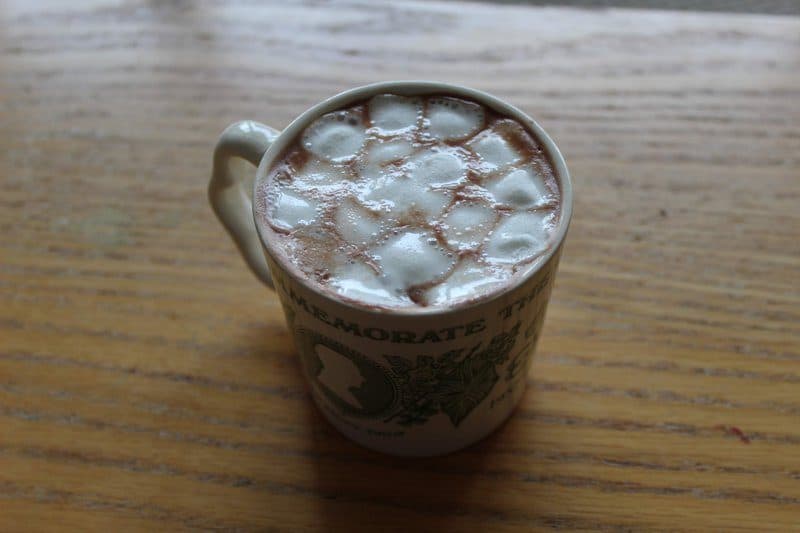
Not surprisingly, cheese tea also comes with some downsides, too. The full-fat dairy topping is usually sweetened with sugar, which can provide unwanted extra “empty” calories. Of course, different cheese teas are made with different ingredients, so these quantities may vary from case to case.
Sugar, when consumed in high quantities, has been shown to have a wide range of dangerous side effects, including inflammation, obesity, heart disease, and cancer.
A study conducted to ascertain the effects of sugar on adults found that those who consumed a liter of soda a day had more fat in and around their organs and in their blood compared to those who drank sugarless drinks. This fat is called visceral fat and can lead to obesity, metabolic disorders, and inflammation.
It’s impossible to say how much sugar is in a cup of cheese tea as each recipe is slightly different. However, it’s safe to say that the beverage is relatively high in calories. As in addition to sweetening the creamy topping, stores are likely to add additional sweeteners and sugars to the drink overall to improve the taste. Some have reported that the beverage has as much as 240 calories and 34 g of sugar per 475 ml serving.
Of course, if you’re concerned about the amount of sugar in your drink, you may wish to speak to your local cheese tea shop about their unique recipe to give you a better idea of exactly what you’re consuming. You may be able to ask for an unsweetened version, which would help to cut your added sugar consumption.
Although tea has many benefits, and dairy has some healthy antioxidants, the amount of sugar and the number of calories in the beverage typically outweigh any positives, if consumed in excess. It’s safe to say that cheese tea should be treated as a special treat as opposed to a healthy drink to be consumed on a daily basis.
Can You Make Cheese Tea At Home?
If you are eager to try this new trend for yourself, it’s actually fairly easy to whip up your own version at home. If you make the beverage at home, you’ll have the power to choose exactly what goes into the drink. You’ll know that there are no extra added sweeteners that you don’t want to consume.
- Start by brewing a hot or cold tea of your choice. Sweeten the tea, if preferred. Opt for a sugar alternative if you can.
- Next, combine cream cheese, whipped cream, and a little sprinkle of salt. A dash of cinnamon or pure vanilla extract might be nice, too.
- Whip up into a foam with a whisk or in a blender
- Last step is to simply spoon the mixture over your cup of tea. Sprinkle with a few flakes of sea salt or a drizzle of honey, take a few pictures of your creation, then sit back and enjoy!
Is Cheese Tea The Same as Milk Foam Tea?
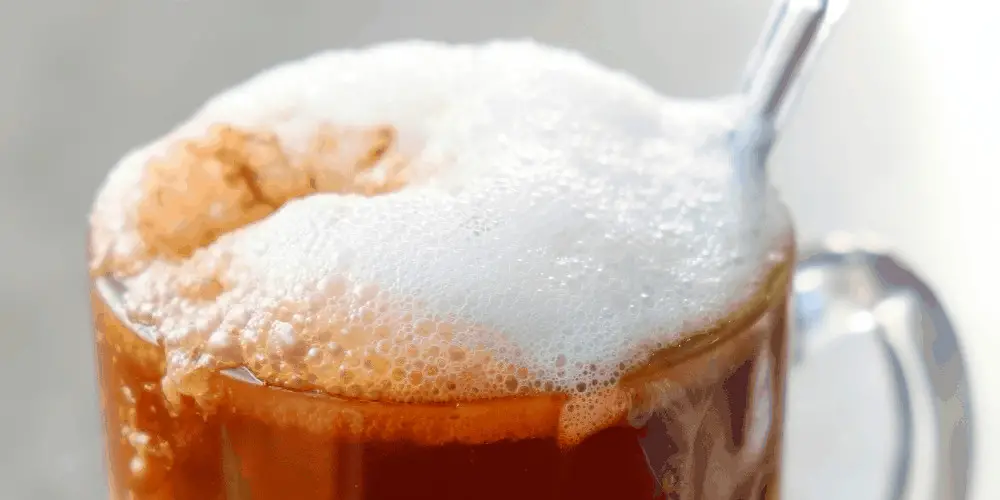
Milk foam tea looks very similar to cheese tea, with the same distinctive foam layer on the top. However, milk tea, unlike cheese tea, simply contains frothed milk placed on top of the beverage; it does not contain cream cheese. This means that the beverage tastes a little less like cheesecake, and a little more like a simple tea latte.
Because milk tea doesn’t contain the same dairy ingredients as cheese tea, the calorie count is slightly lower. With milk foam tea, you’ll still be consuming some extra calories, but only the same amount as would be found in your average latte.
FAQs About Cheese Tea
Where Can I Find Cheese Tea Near Me?
Luckily, cheese tea enthusiasts shouldn’t worry too much. The drink is becoming more and more popular with each passing day. It’s now pretty easy to find in large cities across America and the UK. We recommend starting with Asian tea stores, which are more likely to jump on the trend early.
Who Invented Cheese Tea?
Unfortunately, we don’t know the person behind this innovative beverage. However, we know it started in China. It seems that it was invented by a company called HEYTEA, which was previously known as Royaltea.
What are the Flavors of Cheese Tea?
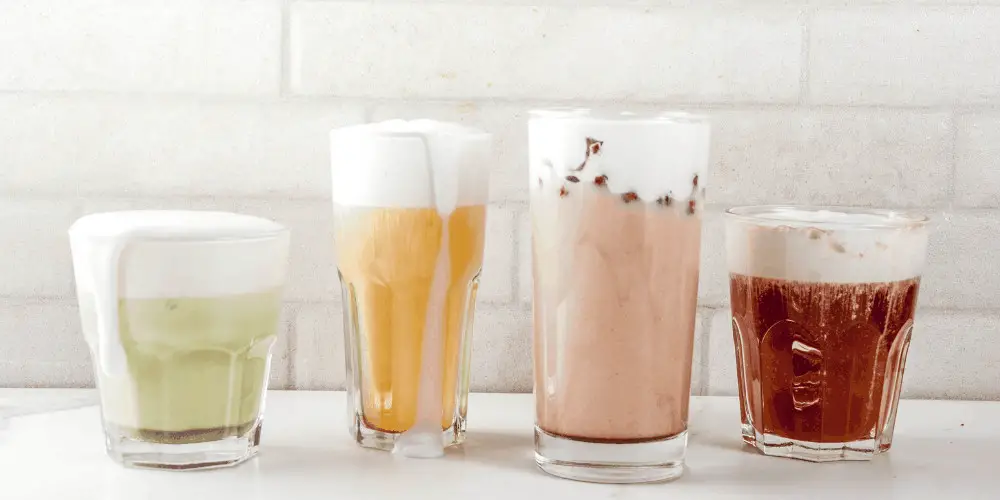
Because cheese tea is so popular, sellers of the beverage have had to come up with more and more different tasty flavors to satisfy their customers. You’ll find everything from chocolate to strawberry to creme brûlée flavors in some shops!
Is There a Vegan Version of Cheese Tea?
For vegans and people who are lactose intolerant or allergic to dairy, traditional cheese tea is sadly off-limits because of its high dairy content. However, hope is not lost; check out your favorite vegan cafe and see if they’ve made their own dairy-free version of the beverage.
You can also make your very own vegan cheese tea from the comfort of your home.
Check out this ingenious recipe that uses coconut milk, lemon juice, pink salt, vanilla, maple syrup, and tea. This is a great way to get the tasty foam without the extra calories and sugar. Now that more companies are producing plant-based versions of popular dairy items, you could even use a plant-based cream cheese along with plant-based milk or coconut milk and produce a cheese tea that tastes pretty close to the real thing.
Final Thoughts
While cheese tea may sound like a strange and unappealing mixture, it’s clear that plenty of people are loving this bizarre treat. However, while cheese tea may be surprisingly delicious, there is little evidence to suggest that it’s actually a healthy beverage, so don’t let the fact that it’s a “tea” fool you.
While you may get some of the benefits of a healthy cup of tea, the drink can be high in calories, so it really should be reserved for days when you just want to treat yourself. Have you ever tried cheese tea? Let us know your experience below.

